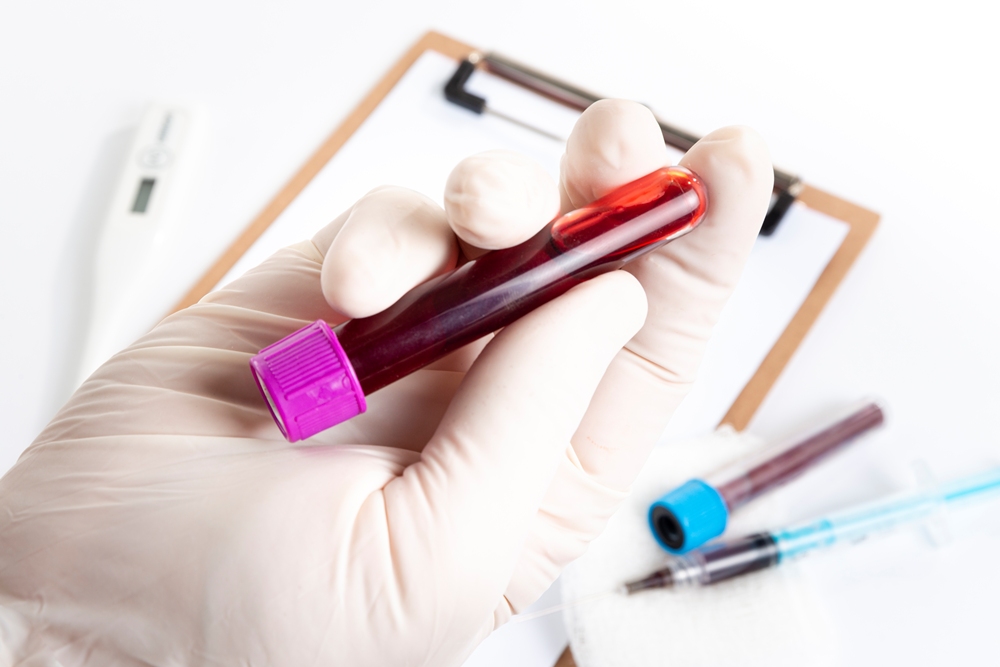Dementia
People with multiple sclerosis (MS) have a nearly fivefold increased risk of developing dementia compared with those without the disease, a nationwide study in Taiwan suggests. Treatment with disease-modifying therapies significantly reduced the risk of neurodegenerative dementias, conditions linked to the loss of brain cells. Use of Aubagio, known generically as teriflunomide, was also associated [...]
Severe CTE is clearly linked to dementia in people exposed to repetitive head impacts, researchers have found. Chronic traumatic encephalopathy, or CTE, is a progressive brain disorder caused by repeated head impacts. It is seen in people who play contact sports, serve in the military or are exposed to physical violence. CTE can [...]
Scientists have observed in real time and reversed a chemical process linked to protein clumping associated with Alzheimer’s disease. Using a molecule-measuring technique in laboratory tests, researchers tracked how certain metals can promote the clumping of amyloid-beta proteins. In people with Alzheimer’s disease, these protein build-ups block neural pathways and prevent brain cells from communicating [...]
A blood test could help predict Alzheimer’s symptom onset, with researchers reporting estimates accurate to within three to four years. The method uses levels of a protein called p-tau217, measured in plasma, the liquid part of blood, to estimate the age at which symptoms are likely to appear. P-tau217 reflects the build-up of amyloid and [...]
By SweetTree Home Care Services As the home care industry evolves, so do the many solutions on offer for those with additional needs, with technology playing a big role in this growth. Working in cooperation with SweetTree Home Care services, the technology support service JC Explore is one of the many organisations pushing for the integration [...]
A doctor claims diet soda raises dementia risk by 290 per cent and stroke risk by 300 per cent, citing long-term research. Dr Clint Steele, 56, a specialist in the brain and nervous system, says he helps people improve their lives by boosting brain function and preventing or reversing dementia and Alzheimer’s disease, a progressive [...]
A coroner found that football heading likely contributed to brain injury that was a factor in Gordon McQueen’s death, an inquest in North Yorkshire heard. McQueen, capped for Scotland 30 times between 1974 and 1981 and a former Manchester United and Leeds player in a 16-year career, died at his home in North Yorkshire in [...]
REM sleep disorder may mark early cognitive decline and raise risk of diseases such as Parkinson's, a long-term study suggests. Researchers studied people with long-term isolated REM sleep behaviour disorder (iRBD), a condition where sleepers act out dreams, often screaming, laughing or making violent movements. The term "isolated" means no other neurological disease. They found [...]
A team has developed a selective compound that inhibits an enzyme tied to inflammation in people at genetic risk for Alzheimer's disease. The compound preserves normal brain function while crossing the blood-brain barrier, the protective membrane that separates the brain from the bloodstream. The driver is an enzyme called calcium-dependent phospholipase A2 (cPLA2). [...]
A simple tool predicts five-year dementia risk in stroke survivors using routine clinic and hospital data, an international team reports. The analysis drew on more than 2,600 stroke survivors across 12 studies in 10 countries, coordinated through the global Stroke and Cognition Consortium (STROKOG). Researchers found that a combination of age, sex, education, stroke severity, [...]













